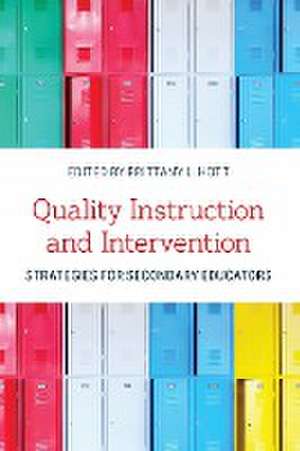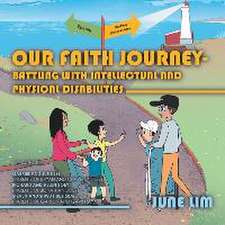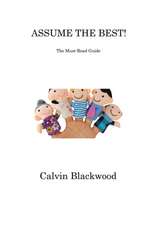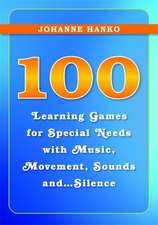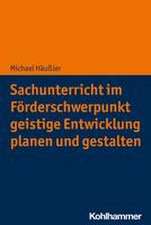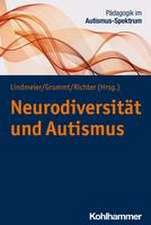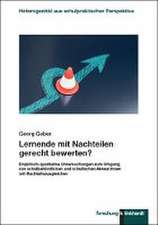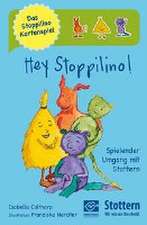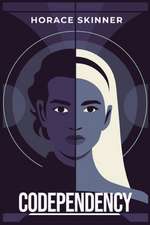Quality Instruction and Intervention Strategies for Secondary Educators
Editat de Brittany L Hotten Limba Engleză Hardback – 6 apr 2023
Preț: 635.19 lei
Preț vechi: 784.18 lei
-19% Nou
Puncte Express: 953
Preț estimativ în valută:
121.56€ • 127.88$ • 101.43£
121.56€ • 127.88$ • 101.43£
Carte tipărită la comandă
Livrare economică 09-23 ianuarie 25
Preluare comenzi: 021 569.72.76
Specificații
ISBN-13: 9781538143766
ISBN-10: 1538143763
Pagini: 294
Ilustrații: Text Boxes; Illustrations, unspecified; Tables; Black & White Illustrations
Dimensiuni: 183 x 260 x 21 mm
Greutate: 0.73 kg
Editura: Rowman & Littlefield Publishers, Inc.
ISBN-10: 1538143763
Pagini: 294
Ilustrații: Text Boxes; Illustrations, unspecified; Tables; Black & White Illustrations
Dimensiuni: 183 x 260 x 21 mm
Greutate: 0.73 kg
Editura: Rowman & Littlefield Publishers, Inc.
Cuprins
Chapter 1: Introduction to Quality Instruction and Intervention
Brittany L. Hott and Angela Green
Chapter 2: High-Quality Core Classroom Reading Instruction
Pamela Williamson, Kelly J. Williams, Dave Furjanic, and Jessica R. Toste
Underlying Policies, Standards, Theories, and Research
Brittany L. Hott and Angela Green
Chapter 2: High-Quality Core Classroom Reading Instruction
Pamela Williamson, Kelly J. Williams, Dave Furjanic, and Jessica R. Toste
Underlying Policies, Standards, Theories, and Research
- Educational Policy
- Academic Standards
- Foundational Theories
- Guiding Research
- Assessments to Guide Instructional Planning and Decision-Making
- Instructional Methods for Core Reading Instruction
- Effective and Explicit Instruction
- Vocabulary Instruction
- Comprehension Instruction
Conclusion- Bridge from Instruction to Intervention
Chapter 3: Reading Intervention Methods for Secondary Students
Jessica R. Toste, Brennan Chandler, Erica Fry, and Kelly J. Williams
Theories Informing Reading Interventions for Secondary Students
Evidence Base on Reading Interventions
Assessment Methods to Guide Instructional Decision-Making- Data-Based Instruction
- Progress Monitoring
- Diagnostic Assessment
- Intervention Adjustments
- Prerequisite Skills Instruction
- Foundational Skills Routine
- Letter-Sound Review
- Blending Practice
- Read and Write Words
- New Concept
- Read Connected Text
- Multisyllabic Word Reading Fluency
- Multisyllabic Word Reading Instructional Routine
- Affix Learning
- Peel Off Reading.
- Word-Building Activity
- Word Reading Fluency
- Connected Text Reading
- Fluency Building
- Oral Reading Fluency Routine
- Content-Area Knowledge Building
- Vocabulary Routine
- Topic Introduction Routine
- Building and Monitoring Reading Comprehension
- Context Clues
- Greek and Latin Roots
- Question Types
- Summarizing
- Get the Gist Routine
Intervention Resources
References
Chapter 4: Quality 6¿12 Mathematics Instruction
Bradley S. Witzel, Tricia K. Strickland, and Jonté A. Myers
Chapter Objectives
Setting Goals in Secondary Mathematics
Planned Outcomes
Progressions across Grade and Content
Systematic Instruction- Task Analysis Steps
- Task Analysis Example of Division of Fractions
- Task Analysis Example of Logs
Practice and Homework- Immediate Practice
- Completed with Potential Assistance
- Mixed Problems of Multiple Math Skills
- Completed in a Reasonable Amount of Time
- Cognitive Strategies
- Visuals
- Differentiation
References
Chapter 5: Mathematics Interventions for Secondary Students with Disabilities
Tricia K. Strickland, Bradley S. Witzel, and Jonté A. Myers
Characteristics of Students with Mathematics Learning Disabilities
Taxonomy of Intervention Intensity
Research-Based Instructional Practices- Explicit Instruction
- Guided Practice Worksheet
- Quadratic Functions Cue Card
Multiple Representations - Strategy Instruction
- Prompt Cards and Structured Worksheets
- Linear Functions
- Quadratic Functions
- Exponential Functions
- Classwide Peer Tutoring (CWPT)
- Progress Monitoring
References
Chapter 6: Teaching the Podcast: Using a Genre Approach to Secondary Writing Instruction
Amber Curlee and Jessica Singer Early
Objectives
Foundational Learning Theory
Guiding Research and Policy
Connection to Standards
Professional Groups
Formative/Summative Assessment Methods
Teaching the Podcast Genre
Assignment Examples
Mentor Texts
Writing Workshop Tip: Scriptwriting- Finding Focus for Your Podcast
- Digital Tools
Conclusion
Chapter 7: Writing Intervention
Ambra L. Green and John Romig
Formative Writing Assessments- Curriculum-Based Measurement
- Exit Slips
- Error Analysis
- Holistic Ratings
- Generic Rubrics
- Genre-Specific Elements
- Theory Guiding Self-Regulated Strategy Development
- Self-Regulated Strategy Development
- Six Stages of Instruction
- Stage 1: Develop and Activate Background Knowledge
- Stage 2: Discuss It
- Stage 3: Model It
- Stage 4: Memorize It
- Stage 5: Support It
- Stage 6: Independent Performance
- Writing Strategies
- Self-Regulation Strategies
- Case Study Example Using SRSD for the ACT Argumentative Essay
- Paul¿s Independently Written Argumentative Essay
- Writing to Learn
- Technology Tools
- Sentence Construction Conclusion
- Nature of Science (NOS)
- Scientific Inquiry
- Scientific Literacy
- The Framework for K-12 Science Education and the Next Generation Science Standards (NGSS)
- Quality Assessment in Science Education
- Some Key Instructional Methods in Science Education
- Project-Based Learning (PBL)
- Socioscientific Issues (SSI)
- Engineering Design Challenges
- Models and Simulations
- Nature of Social Studies
- Social Studies Inquiry
- Social Studies Literacy
- The College, Career, and Civic Life (C3) Framework for Social Studies State Standards
- Quality Assessment in Social Studies
- Key Instructional Strategies in Social Studies Education
- Engagement
- Analysis
- Project-Based Learning
- Planning Instruction for All Students
- Science Assessments Explained
- Planning Instruction for All Students
- Social Studies Assessment Explained
References
Chapter 9: Science and Social Studies Intervention
Jonte C. Taylor, Darren Minarik, Sami Khan, and Tim Lintner
Evidence-Based and High Leverage Practices in Science and Social Studies
General Literacy and Content Acquisition Interventions for Science and Social Studies
General Literacy Interventions in Science and Social Studies- Supported Inquiry
- Science-Based Inquiry Research
- Social Studies-Based Inquiry Research
- Higher Order Thinking and Reasoning
- Concept Comparison
- Question Exploration
- Cause and Effect
- Decision-Making
- Cross-Curricular Argumentation
- Key Points Content Acquisition Interventions in Science and Social Studies
- Mnemonics
- Science-Based Mnemonics Research
- Social Studies-Based Mnemonics Research
- Graphic Organizers
- Science-Based Graphic Organizer Research
- Social Studies-Based Graphic Organizer Research
- Peer-Mediated Support Strategies
- Science-Based Peer-Mediated Strategies Research
- Social Studies-Based Peer-Mediated Strategies Research
- Key Points Conclusion
- Maximize Classroom Structure
- Description of the Skill
- Research Support
- How to Implement the Skill
- Post, Teach, Review, Monitor, and Reinforce Positively Stated Rules and Expectations
- Description of the Skill
- Research Support
- How to Implement the Skill
- Actively Engage Students in Observable Ways
- Description of the Skill
- Research Support
- How to Implement the Skill
- Establish a Continuum of Acknowledging Appropriate Behaviors
- Description of the Skill
- Research Support
- How to Implement the Skill
- Establish a Continuum of Strategies to Respond to Inappropriate Behaviors
- Description of the Skill
- Research Support
- How to Implement the Skill
References
Chapter 11: Social, Emotional, and Behavioral Intervention
Kathleen M. Randolph, Glenna Billingsley, and Jasmine Justus-McDowell
Chapter Objectives
Operational Definitions of Behavior
Explicit Social Skills Instruction
Tier 2 Evidence-Based Interventions Classroom Management- Check-In/Check-Out
- Description of the Intervention
- Research Support
- How to Implement the Intervention
- High Probability (High-P) Sequence
- Description of the Intervention
- Research Support
- How to Implement the Intervention
- Self-Monitoring
- Description of the Intervention
- Research Support
- How to Implement the Intervention
- Group Contingencies
- Description of the Intervention
- Research Support
- How to Implement the Intervention
- Behavior Contracting
- Description of the Intervention
- Research Support
- How to Implement the Intervention
- Daily Behavior Report Cards
- Description of the Intervention
- Research Support
- How to Implement the Intervention
- FBA/BIP
- Description of the Intervention
- Research Support
- How to Implement the Intervention
Foundational Learning Theory
Guiding Research
Professional Standards
Formative and Summative Assessment
Conclusion
References
Chapter 12: Good Study Strategies
B. Keith Ben-Hanania Lenz
What Should Be Studied?
Teaching Students with Poor Study Strategies
Features of Good Study Strategies
Approaches to Teaching Good Study Strategies
Good Ways to Study- Organizing Information to Structure Study
- Listening and Notetaking
- Structuring Good Study
- The Overall Study Plan Progress Monitoring and Studying
Conclusion
Additional Resources
References
Chapter 13: Additional Resources
Julie Atwood, Jacquelyn Purser, and Brittany L. Hott
References
Index
About the Contributors
References
Chapter 10: Quality Behavior Instruction: Classroom Management
Ashley MacSuga-Gage, Jasmine Justus-McDowell, Nicholas A. Gage, and Brittany Batton
Theoretical Foundations of Evidence-Based Classroom Management
Relevant Educational Policy Associated with Classroom Management
Classroom Management and Professional Standards of Educational Practice
Evidence-Based Classroom Management
References
Chapter 8: Science and Social Studies Content
Sami Khan, Tim Lintner, Darren Minarik, and Jonte C. Taylor
Why Science and Social Studies?
What Is Science? - Six Stages of Instruction
- Multisyllabic Word Reading Instructional Routine
- Foundational Skills Routine
